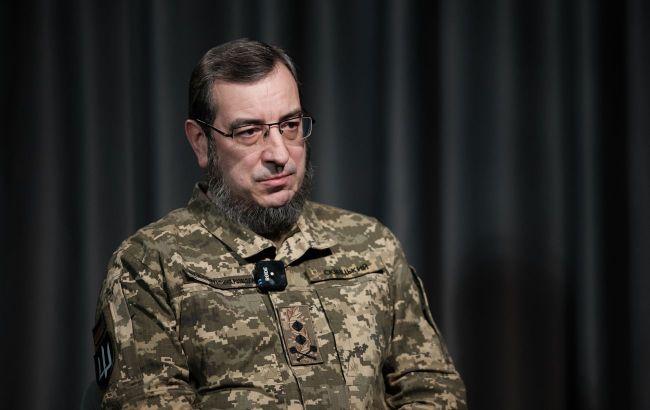'We have plans': Ukraine's intel explains tactics behind deep strikes on Russia
 Photo: HUR deputy chief Vadym Skibitskyi (Vitalii Nosach, RBC-Ukraine)
Photo: HUR deputy chief Vadym Skibitskyi (Vitalii Nosach, RBC-Ukraine)
During strikes deep inside Russia, Ukrainian defenders target the enemy’s key facilities. The effect of these operations is already evident, says deputy chief of Ukraine's Defense Intelligence (HUR), Vadym Skibitskyi, at the RBC-Ukraine forum Energy that keeps Ukraine running.
Skibitskyi noted that the HUR works closely with all units that operate long-range drones. This cooperation concerns primarily the selection of priority targets. The key ones are those elements that ensure the continuation of warfare.
He conditionally divided Ukraine’s targets on Russian territory into three categories: the command system, the defense-industrial complex, and the energy infrastructure.
“We have plans. We are trying to strike the most critical targets. And the results of our work on oil refineries and fuel storage bases are obvious,” the deputy head of the HUR added.
According to him, Ukrainian defenders have achieved particular success during strikes on oil refineries. Russia’s losses in this sector amount to between 27 and 30 percent.
“This is a significant figure. It really has an impact. It affects not only the battlefield and Russia’s ability to wage war but also the internal situation inside Russia. Because, essentially, they understand what is happening. But unfortunately, they still don’t understand the nature of it,” Skibitskyi said.
Ukraine improves its strikes
According to Skibitskyi, Ukrainian forces are improving both their tactics of drone use and the drones themselves. Already now, they can hit targets at a distance of about 1,500 kilometers and even farther, creating the capability to attack the most critical targets on Russian territory that help sustain the war.
“I would like to note that the most critical, the most important enterprises, other companies, factories, and plants of the Russian Federation are located at a distance of 500 and even more than 750 kilometers from our border. To strike such facilities, very powerful means are required. That is why it is called a deep strike,” he emphasized.
Russians feel the impact of Ukraine’s strikes on oil refineries
The Institute for the Study of War (ISW) wrote that following successful Ukrainian strikes on oil refineries in Russia, fuel prices had risen.
According to ISW, surveys show that more than 70% of Russians have already felt the impact of rising gasoline prices.

